- Home
- Marge Piercy
Storm Tide
Storm Tide Read online
More praise for Storm Tide
“Not since Tough Guys Don’t Dance has Cape Cod taken it so delightfully on the chin in such a dramatic and fast-paced novel .… From first page to last I couldn’t put it down. Marge Piercy and Ira Wood deliver a marvelous 1-2 knockout punch that any pair of literary pugilists would be proud of.”
—JOHN NICHOLS
“Piercy’s characters often struggle simultaneously for sexual freedom and intimacy, and it is always fascinating so see how they go after it .… Characteristic of Piercy, she manages to help us sympathetically understand the dynamics of someone like Crystal, and Wood lays out how a needy damsel in distress can manage to get her hooks into a rescuer like David. If you’ve ever wondered how it is that the ‘good guys’ always seem to get snagged by the crazies, this is a revealing illustration. Piercy exposes the culture of females in fascinating detail.”
—The Bloomsbury Review
“A seamless coming-of-age story in which a man must confront his past, his enemies, and the results of a tragic accident before he can finally settle into a new life .… A wise tale, in a vividly rendered setting, of men and women learning to live and love more fully.”
—Kirkus Reviews
“[A] perceptive, stinging depiction of a parochial seaside resort.”
—Publishers Weekly
BOOKS BY MARGE PIERCY
POETRY
Breaking Camp
Hard Loving
4-Telling
To Be of Use
Living in the Open
The Twelve-spoked Wheel Flashing
The Moon Is Always Female
Circles on the Water
Stone, Paper, Knife
My Mother’s Body
Available Light
Mars and Her Children
What Are Big Girls Made Of?
FICTION
Going Down Fast
Dance the Eagle to Sleep
Small Changes
Woman on the Edge of Time
The High Cost of Living
Vida
Braided Lives
Fly Away Home
Gone to Soldiers
Summer People
He, She and It
The Longings of Women
City of Darkness, City of Light
ESSAYS
Parti-colored Blocks for a Quilt
ANTHOLOGY
Early Ripening: American Women’s Poetry Now
BOOKS BY IRA WOOD
NOVELS
The Kitchen Man
Going Public
PLAY
The Last White Class
DAVID
When the winter was over and my nightmares had passed, when someone else’s mistakes had become the subject of local gossip, I set out for the island. I made my way in increments, although the town was all of eighteen miles square. To the bluff overlooking the tidal flats. Down the broken black road to the water’s edge. To the bridge where her car was found, overturned like a turtle and buried in mud.
The color of bleached bones, the shape of a crooked spine, the Squeer Island bridge was a product of willful neglect. Every ten years some town official proposed a new bridge and promptly fell into a hole full of lawyers. The beaches were private, the summer people moneyed, the year-rounders reclusive. No one wanted the sandy ways paved or the hedgerows cut back. Your deed bought more than seclusion on Squeer Island; here life as you knew it ceased to exist.
There had been a family named Squeer, but only Stumpy was left. If you asked how the island got its name, people would say, “’Cause it’s queer over there,” and they didn’t mean homosexual. They meant queer things happened. Peculiar things. Uncommon for a small town.
During high tide there was no access by land. The road to town flooded. Ducks paddled over the bridge. Fish darted through the guardrails. The summer people stocked their shelves with vodka and paperbacks and waited uneasily for the tide to recede. The residents lived for its return.
I left my car on the island side of the bridge. I slogged along the mud banks of the creek, driving fiddler crabs in front of me like herds of frightened crustacean sheep. The grasses were four feet high at the edge of the bank, an inch wide, sharp as razors. They mentioned lacerations across the palms; one in her right eyeball. I closed one eye. I wondered what it was like to sink in this bottomless liquid clay, this mud the fishermen called black mayonnaise. What did it feel like to die this way? They said her hair was encrusted with seaweed and crabs, that an eel had eaten into the armpit. They say she must have struggled to free herself, that as she grabbed at the grass her efforts only increased the suction of the mud. They still call it an accidental death.
Saltash, Massachusetts, was founded in 1672 and named for a village in Cornwall, England. Summer population: twenty thousand. Winter population: divide by ten. The economy is eighty percent tourism; the leading economic indicator: the number of pickups idling outside Barstow’s Convenience at seven A.M. Like any quaint, postcard-perfect Cape Cod town, there are hundreds of stories to be ashamed of here. Only conscience dictates that I start with my own.
If you lived in Saltash, you’d know that I grew up here and had been famous for something—although you probably wouldn’t remember what. You might have heard that I left town at eighteen, after having signed a contract for a small fortune, and returned twelve years later. You’d know that I live in a small white half Cape on Round Pond Road and drive a red pickup; that I run a landscaping business with my sister, which (no one forgets to mention) she owns. You might have voted for me for selectman. Everyone I talked to told me they did. (For the record, I received 578 votes.) You would say I wasn’t the type to make promises or suck up to people; you might say I kept to myself. You would excuse me for my private life; 578 people obviously did. According to my backers (twelve old men who fancied themselves Saltash’s political kingmakers) I had been drawn in by the Squeer Island crowd—a local epithet implying strange sexual practices and not far from the truth. “Seduced” was the explanation whispered most.
It happened in September, the night of the new moon. A storm was tracking our way. Judith warned me that we were facing one of the highest tides of the year. If I couldn’t get over the bridge in time, I wouldn’t get through at all. “Gordon expects you. He really wants you there,” she said, just so I knew it wasn’t her who did.
More than anyone I’ve ever known, Judith loved rituals. She loved to cook for people. They didn’t have to be important people or the best of friends. A festive, well-set table surrounded by guests who weren’t watching their weight would do: people who arrived on time and had interests other than themselves and remembered to thank her for her trouble. But tonight was special. There were over thirty guests at the table of Gordon Stone and Judith Silver. It was special because it was Rosh Hashanah, and Judith had instituted the celebrating of the Jewish holidays when she became Gordon’s fourth wife thirteen years before I met her. Special because Gordon was dying of lung cancer, and he was saying goodbye.
He looked like a living skeleton. His color was grayish-blue and he could not sit up, but reclined, lying on a couch with heaped-up pillows that had been dragged to the table. Judith was wearing a short red shift tonight and her fine skin and dark hair shone. Her necklace and earrings were silver. Judith did not like gold. She once told me silver was a more human metal because it aged, it changed.
Judith had prepared traditional foods. Buckwheat groats with mushroom gravy and bow-tie noodles, roast chicken, potato kugel, gefilte fish, apples dipped in honey. Those friends who weren’t Jewish—including two of Gordon’s adult children whose mother wasn’t—hummed the songs we taught them and bowed their heads as we blessed the wine, and followed everything we did with the curious respect of anthropolog
ists at an Mbundu marriage ceremony in Angola. What they might have missed, however, was the fact that Judith wouldn’t be caught alone in the same room with me, removing herself whenever I tried to pull her aside to talk.
No one on the island asked about Judith and Gordon and me. What was common knowledge was never uttered. What mattered was that Gordon had spent an entire summer vacation helping Stumpy Squeer rebuild his house after a fire; that Judith had had a troubling intuition about a high school girl’s painful cramps and drove her through a snowstorm to a good Boston hospital in time to be treated for a tubal pregnancy. There were feuds and there were grudges. But judgments among the year-rounders were limited to practical problems: Whose dog had ripped through whose garden? Who rented to noisy college kids in July?
By the second course, the lights began to flicker. The surf was halfway up the dune. Judith had arranged housing for almost everyone, except of course for me. But after the summer of silence, I was determined to talk to her and, finally, finally caught her alone in the kitchen.
“What do you want with me, David?” She turned her back. “Talk to Crystal. You’re going to marry her.”
“I don’t want to marry Crystal. Can we sit down and talk about this?”
“Not here. Not now. I have thirty people to settle in for the night. If you absolutely insist on talking, wait for me in my shack.”
Judith’s “shack” was an electronic cottage, part sanctum, part home office. It was fitted out with a computer, two printers, copier, scanner, and fax—as well as the double bed where we had made love many times. I lay back against the headboard, waiting, rehearsing my speech while the three cats who had been locked up there for the evening jumped from the dresser to my stomach and off again, taking out their anger on me. Sand pitted the glass and blew in through gaps in the jambs. You found sand in your shoes after nights like this, a film of sand like dust. Every shelf in the cottage shook. Wind lifted the shingles and smacked the roof. The joists shivered and sawdust trickled over the bed like snow. An hour passed. Water ran in sheets down the windows and poured from the downspout. Judith did not come.
When I heard the sound of a car horn, I knew something was wrong. One long drone, as if the driver was leaning on the wheel, and as it got closer, short blasts of pure panic. I ran for the main house, ran hard through the muddy courtyard in the pelting rain.
What I need to say is that I’m telling all this to get it straight, to reduce a tragedy to its parts and somehow understand. Call it an autopsy. A dissection of something that had once been alive; a determination as to the cause of death.
DAVID
I was born with a talent, a peculiar accident of reflex and bone, like an eidetic memory, or the facility to play an instrument by ear, an aptitude as curious as it was admired. I was a phenomenon, a teenage celebrity, for by some fluke of chromosomal alchemy that in no way resembled the physiology of my parents, I could throw a baseball faster, harder and with more accuracy than any other boy in my school, my county, my state. I became the focus of my family, the obsession of the local media and the hope of an entire town.
My abilities revealed themselves accidentally. We were not, except for my uncle Georgie, a family inclined toward sports. My father had been a manufacturer of women’s dresses who had lost two businesses on Seventh Avenue before going into debt to buy a curtain factory on Cape Cod. Because of the size of the town and the simplicity of the product, my father assumed he could master the transition with ease. But just as his stitchers had sewn half the collars backwards on a big Christmas order of red velvet dresses for Macy’s and his best salesman defected, taking the buyers with him, the crises presented themselves in Massachusetts as frequently as they had in Manhattan. My father had no time for games. Baseball, like poker and local women, were the bad habits of his younger brother Georgie, who worked for my father. Georgie—never George to my father; never “my brother” but “my kid brother”—had followed us north. In charge of maintenance and shipping, he partied with the workers his age and the local fishermen as if he were native born. Up at five A.M., never home at night before eight, my father lived exactly as he had in New York, preoccupied with the business, while Georgie dated girls from town and drank beer in the oyster shacks, cast for bluefish and sea bass on the back shore and learned to bait his hooks by the light of the moon.
My father’s factory was the largest business in Saltash and the least solvent. As payroll day came around, my parents’ arguments began, the recriminations and slamming doors, the curses. My mom took private piano students and worked when she could as a substitute teacher, but every Sunday night my parents sat at the dining room table, staring into the account books, willing the figures to change with the same concentration and futility as if trying to make the furniture levitate.
My sister Holly was too young for the carping to upset her, but I got out of the house whenever I could. What I didn’t hear couldn’t bother me. My world was the old wooden bridge at the mouth of the Tamar River (long since replaced by a cement dike). When the tide was low, a steep sandy beach full of shells and crabs and acres of stones glistened in the sunlight. When the tide was coming in, waves rolled under the bridge or crashed against the causeway. During spring and fall, the alewives migrated underneath and I tried to catch them in an old wire net. The fact that I was different came up occasionally, as when a girl refused to kiss me in a game of spin the bottle or when I was held down and stripped by some older kids who wanted to see a circumcised prick. But the incidents were generally benign. (Soon after we moved to Saltash—I was in first grade—the teacher gave me a generic picture to color, a horse instead of a Santa Claus because, as she announced to the class, Jews don’t believe in Christmas.) And the truth is, we were different. We spoke more quickly and with accents that turned heads in the street; we didn’t eat shellfish, the one product native to the town, and nobody had ever heard of our holidays. We were stocky, with coarse dark hair and light eyes. My mother asked for books that shocked the librarian. If isolation bothered me, I wasn’t conscious of it, until the day I snapped.
I was sitting on the old wooden bridge with Corkie Pugh, watching a quahog dragger slowly crisscross the harbor. Corkie was an overfed, freckle-faced boy with a lisp and an inclination to sadism. Corkie so enjoyed dismembering small animals and embarrassing his sister in public that even I, who had no friendships to speak of, shied away from him. But because his sister took piano lessons from my mom, I was stuck with him. Corkie’s mother usually stayed for coffee after the lesson, and if my mom hadn’t made what she called any “real” friends in Saltash, Lucinda Pugh was the woman she saw most often.
Nobody believed this, but there was no precipitating animosity that day, no shouting. We were tossing rocks at an empty beer can in the sand, watching it jump, when Corkie, as easily as he told me how he watched his sister on the toilet through a hole he had drilled in the bathroom wall, said simply, “Your parenth are gettin’ a divorth, y’know.”
“No, sir.”
“Yes, thir. Your mom tol’ mine.”
I hopped down. Walked off. Kicked a few stones. Flipped one flat stone side-arm over the water’s gray-green surface and watched it hop, once, twice, a third time. Then with no thought whatsoever, I began to hurl stones at Corkie, as quickly as I could pick them up, fast and hard. I had aimed at targets before, but never with such delight in my accuracy, pinging his elbow, his knee, his left buttock as he ran off threatening me with reform school. I wasn’t aware of being angry or frustrated. I had no words with which to explain myself. It was as if everything I needed to say could be expressed through the violent articulation of my arm. I walked home without lifting my eyes from the ground. I blew out our garage windows, one after another at thirty feet. I took aim at my mother’s car, smashing the taillights, rattling the hubcaps. I was shaking when they stopped me. I dropped to the ground. I was a human gun, an eleven-year-old catapult of accuracy and rage.
I was taken before the school psychologis
t and the chief of police, but only Georgie seemed to know what to do with me. He set up beer bottles on a tree trunk and bet me a nickel each I couldn’t hit them. I did. He took me to the town dump, gave me rocks and pointed: that rusty old alternator. Plink! The fender of the abandoned truck. The headlamp socket. One Friday after work, Georgie gathered some of the factory guys at the loading dock and took bets on what I could hit. A can at forty feet. A stop sign at fifty. A pinecone on a dead branch. With his winnings he bought me a baseball glove.
Saltash was a town with a grade school, three churches, and a movie theater open on weekends only. Saturday night after the show, teenagers raced cars down Hill Street from the town’s only grocery to the harbor, whipped around and started uphill again. The stores closed at six and the churches banned bingo. A Little League pitcher who allowed nine runs all season and could strike out half the junior high school team was something to watch. I took us to the state finals three years running. The local paper printed my stats every week in a sidebar on the sports page headed: SALTASH’S DAVEY GREENE. I started pitching for the high school team in ninth grade. In tenth the bird dogs arrived, retired baseball junkies who traveled all over New England searching out talent, notifying the big league scouts who showed up the following year smoking cigars, sitting in their own aluminum lawn chairs instead of the bleachers and logging every pitch I made on their clipboards.
After school, after work, after the season (he never missed a day), Georgie worked out with me. The next Sandy Koufax, he called me. The little Jew that could. Georgie was a veteran who in his army pictures looked like Elvis Presley: pompadour, pouty eyelids, lips in a smirk. I had once heard my parents whispering about a woman and child in Korea. Georgie lived in an apartment built in the loft of the barn behind my parents’ house. His window shades were always drawn. He kept Miles Davis albums in milk crates and his mattress on the bedroom floor. One day, when I reached for a baseball that rolled under the couch, I found his girlfriend’s black lace bra. Georgie used to meet me every day at the town field for practice. He had a piece of foam rubber he stuffed into his catcher’s mitt so his palm wouldn’t sting from my fastball. He taught me how Whitey Ford held a runner on first base, how Bob Feller stared into a batter’s eyes with contempt. He taught me how to raise my leg and stretch like Warren Spahn so that my delivery was as swift as the recoil of a bow.

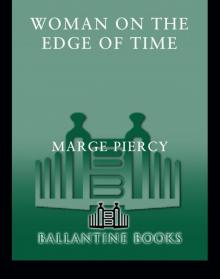 Woman on the Edge of Time
Woman on the Edge of Time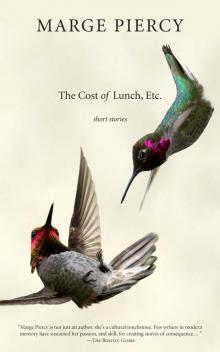 The Cost of Lunch, Etc.: Short Stories
The Cost of Lunch, Etc.: Short Stories Made in Detroit: Poems
Made in Detroit: Poems Sleeping With Cats
Sleeping With Cats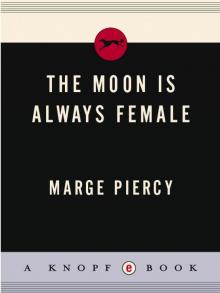 Moon Is Always Female
Moon Is Always Female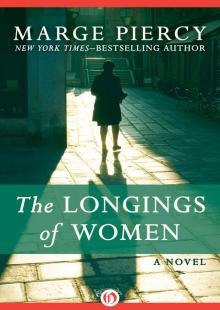 The Longings of Women
The Longings of Women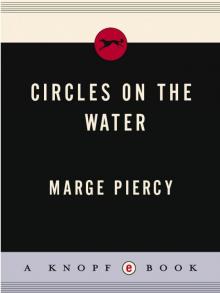 Circles on the Water
Circles on the Water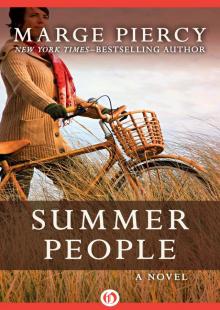 Summer People
Summer People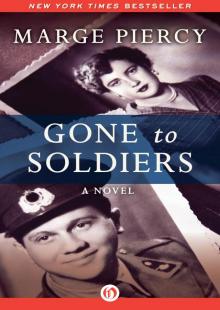 Gone to Soldiers: A Novel
Gone to Soldiers: A Novel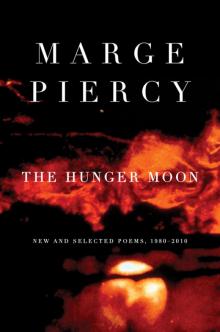 The Hunger Moon: New and Selected Poems, 1980-2010
The Hunger Moon: New and Selected Poems, 1980-2010 Vida
Vida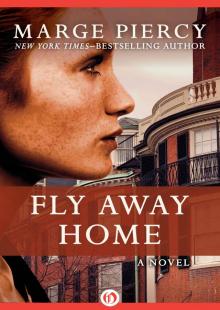 Fly Away Home
Fly Away Home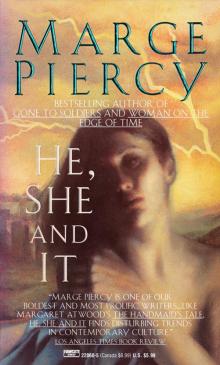 He, She and It
He, She and It So You Want to Write
So You Want to Write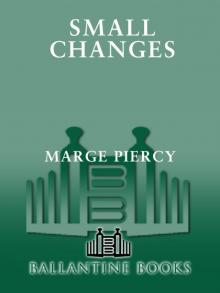 Small Changes
Small Changes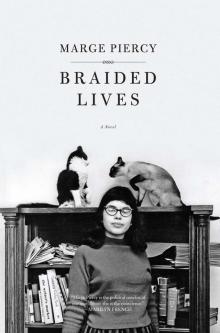 Braided Lives
Braided Lives Lord Valentine's Castle
Lord Valentine's Castle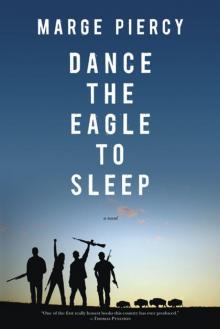 Dance the Eagle to Sleep
Dance the Eagle to Sleep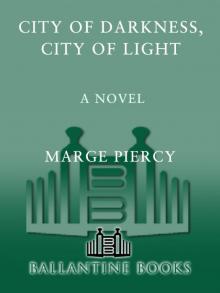 City of Darkness, City of Light
City of Darkness, City of Light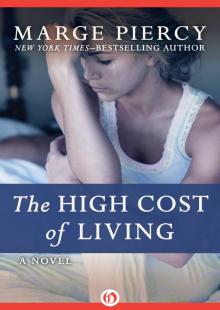 The High Cost of Living: A Novel
The High Cost of Living: A Novel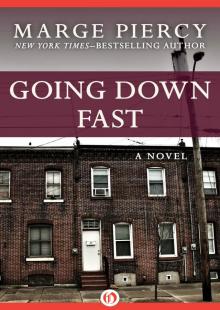 Going Down Fast: A Novel
Going Down Fast: A Novel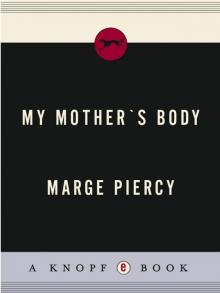 My Mother's Body
My Mother's Body Storm Tide
Storm Tide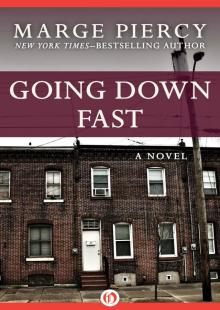 Going Down Fast
Going Down Fast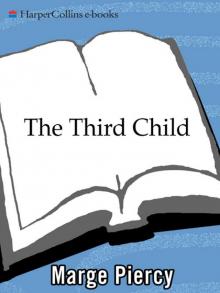 The Third Child
The Third Child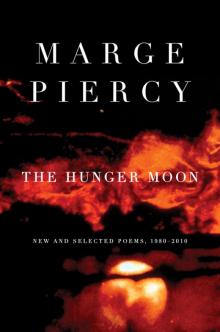 The Hunger Moon
The Hunger Moon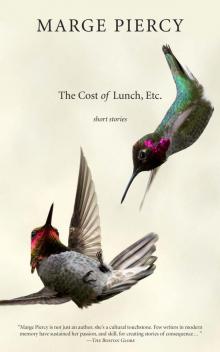 The Cost of Lunch, Etc.
The Cost of Lunch, Etc. Sex Wars
Sex Wars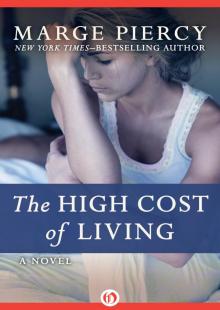 The High Cost of Living
The High Cost of Living Made in Detroit
Made in Detroit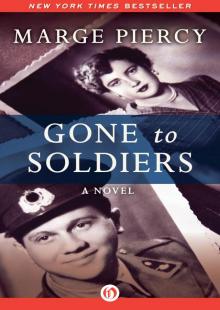 Gone to Soldiers
Gone to Soldiers